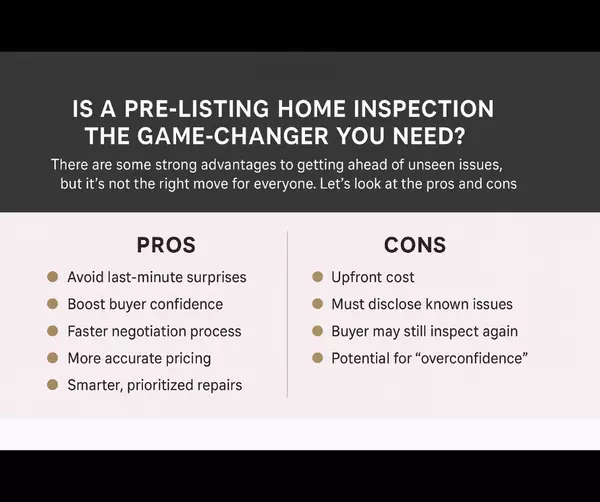Fall Back with Ease! Your Guide to Conquering Daylight Savings Ending This Weekend

Fall Back with Ease! Your Guide to Conquering Daylight Savings Ending This Weekend
It's that time of year again: when we "fall back," and suddenly, it's dark by 5 p.m., making us feel like it's bedtime before we've even thought about dinner! Daylight Savings ends this weekend, and while an extra hour of sleep sounds dreamy, adjusting to the time shift can come with its challenges. Here's how to tackle them like a pro so you can breeze through the time change and keep enjoying the season.
Why the Time Change Feels Like Such a Shock
Sure, we only move the clocks an hour back, but that shift can throw off our internal rhythms more than we'd expect. Our bodies run on a schedule called the circadian rhythm, which gets slightly confused when the time changes. For many, it means feeling sleepy earlier in the evening and waking up before dawn.
Understanding Your Circadian Rhythm
Your circadian rhythm is essentially your body's internal clock, guiding your sleep-wake cycle and various biological processes over a 24-hour period. It's influenced by environmental cues, primarily light, which is why the shift from daylight savings can feel so jarring.
How Circadian Rhythm Works
The circadian rhythm regulates hormones, body temperature, and other functions, responding to light and darkness in your environment. When it's light outside, your body produces cortisol, which helps keep you alert and awake. Conversely, as it gets dark, melatonin kicks in, signaling that it's time to wind down.
Why Daylight Savings Disrupts It
The abrupt change in time can confuse your body's natural rhythms. If you're used to waking up with the sun, suddenly having to adjust to an earlier darkness can disrupt your melatonin production and throw off your sleep cycle. This disruption can lead to feelings of fatigue, irritability, and even difficulty concentrating during the day.
Tips for a Smooth Transition
Get Outside Early
With shorter daylight hours, you'll want to soak up as much sun as you can to help reset your body's clock. Try to step outside for some morning sunshine over the weekend and throughout the next week. Natural light is an excellent signal to your brain that it's "wake up" time, helping you adjust faster.
Adjust Your Evening Routine
Consider dimming the lights in the evening to signal to your body that it's almost time for rest. A warm bath, a bit of reading, or a cozy movie night can help ease you into relaxation without staring at screens, which can keep you wired.
Embrace a New Bedtime
Try to inch your bedtime back by 15 minutes each night leading up to the time change. This mini-adjustment will help ease your body into the new time naturally, so Sunday morning feels less like a jetlag session.
Stay Active (But Not Too Late!)
Exercise is a great way to keep energy levels up, but avoid heavy workouts late in the day. A bit of morning movement will get your blood flowing, so you're more likely to stay alert and focused, even with the earlier sundown.
Make Use of Those Extra Cozy Hours
Here's a chance to make the most of the dark, cozy evenings. Set the scene with soft lighting, candles, and a good book or even start planning for holiday decorations. Consider this your chance to lean into autumnal vibes, even if they arrive at 5 p.m. now!

Caring for Your Pets During Daylight Savings
Just like us, our furry friends can feel the effects of the time change. Pets thrive on routine, so the shift in daylight can leave them a bit disoriented. Here's how to help them adjust smoothly:
Gradually Adjust Their Schedule
To minimize confusion, start adjusting your pet's feeding, walking, and playtime routines a few days before the time change. Move these activities back by 10-15 minutes each day leading up to the weekend. This gradual shift will help them adapt to the new schedule without too much stress.
Keep an Eye on Their Behavior
Pay attention to any changes in your pet's behavior. If they seem more anxious or restless, it might be a sign they're having trouble adjusting. Offer extra comfort through snuggles or quiet time together, and try to maintain consistency in their daily activities.
Ensure They Get Enough Exercise
With the days getting shorter, it's important to ensure your pets still get their daily exercise, even if it's darker outside. Take them for walks during daylight hours when possible, and consider fun indoor activities like fetch or puzzle toys if you're stuck inside.
Create a Cozy Space
As it gets darker earlier, make sure your pet has a comfortable and safe space to relax. A cozy bed in a well-lit area can help them feel secure and less anxious about the changing environment. Consider using night lights to provide some illumination if needed.
Monitor Their Sleep Patterns
Pets may adjust their sleep schedules as the time changes, which can lead to earlier wake-up calls or unusual nighttime activity. Keep an eye on their sleeping patterns and ensure they have a calm environment to promote restful sleep.
Consult Your Veterinarian
If your pet is struggling significantly with the time change or shows signs of stress, don't hesitate to reach out to your veterinarian. They can offer advice tailored to your pet's specific needs and help ease the transition. By being mindful of your pet's routine and providing them with a bit of extra love and attention, you can help them through the transition with ease.
FAQ: Daylight Savings Edition
Q: Why do we still observe Daylight Savings Time?
A: Great question! Initially, it was intended to help conserve energy by making better use of daylight. While there's been debate over its effectiveness today, DST continues in most states, with many adjusting twice yearly.
Q: Does the time change affect my health?
A: For some people, it can disrupt sleep, mood, and even concentration. That's why easing your body into the new time slowly can help reduce these effects. Simple adjustments like going to bed earlier and getting sunlight help keep your energy and focus steady.
Q: How long does it take to adjust to the new time?
A: For most, the adjustment takes about a week. Some people, especially those sensitive to sleep changes, may need up to two weeks. Just remember to stay consistent with your routine!
Q: Can the time change impact pets?
A: Absolutely! Pets tend to stick to a schedule, so don't be surprised if your furry friend is eager for dinner an hour early. Slowly transitioning their feeding and walk times a few days before the time change can help.
As we all enjoy this initial extra hour of sleep, don't forget to be kind to yourself and take the transition one day at a time. With a little planning, you'll adjust before you know it. If you have any real estate questions (or time change tricks), feel free to reach out. I am here to help - even if it's dark outside!
Categories
Recent Posts











